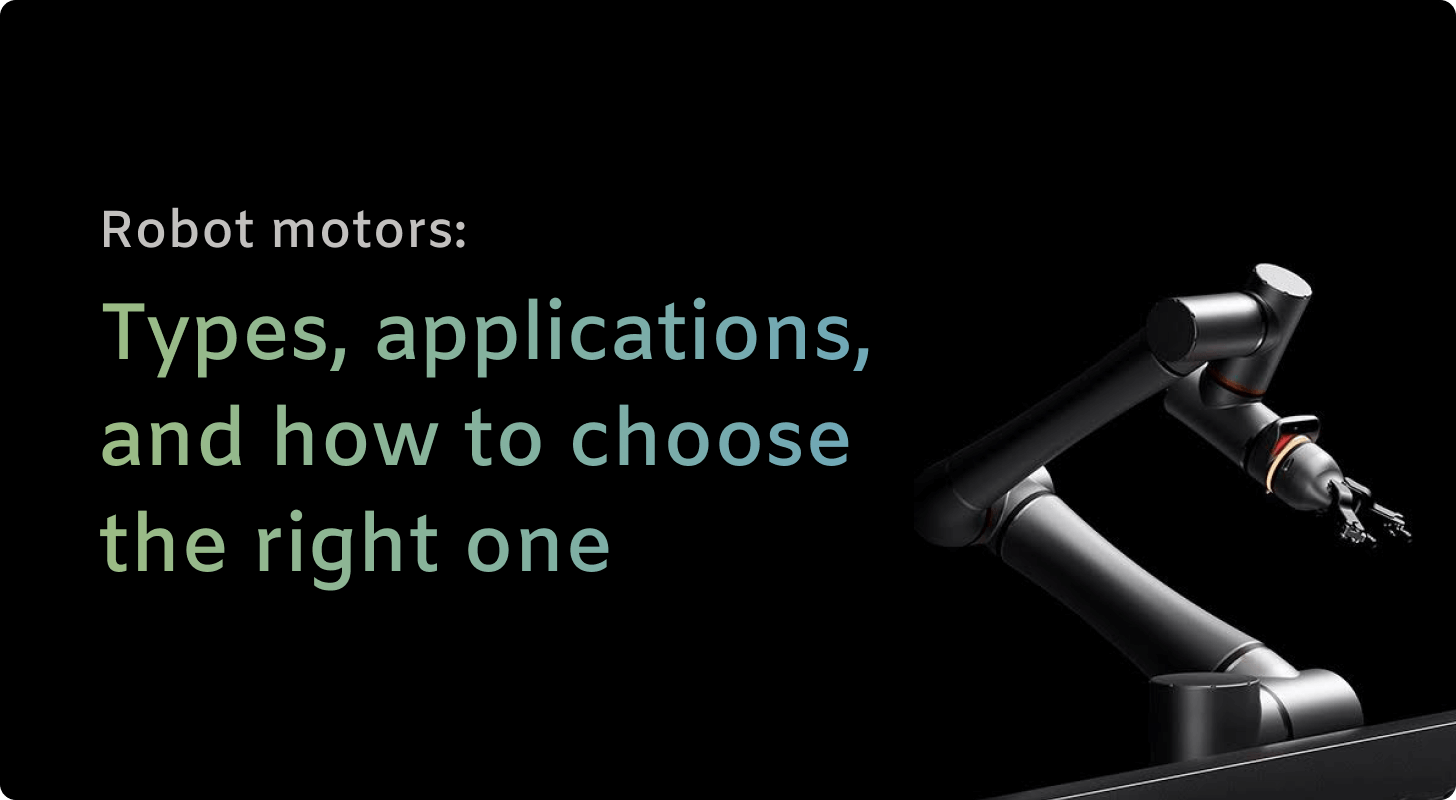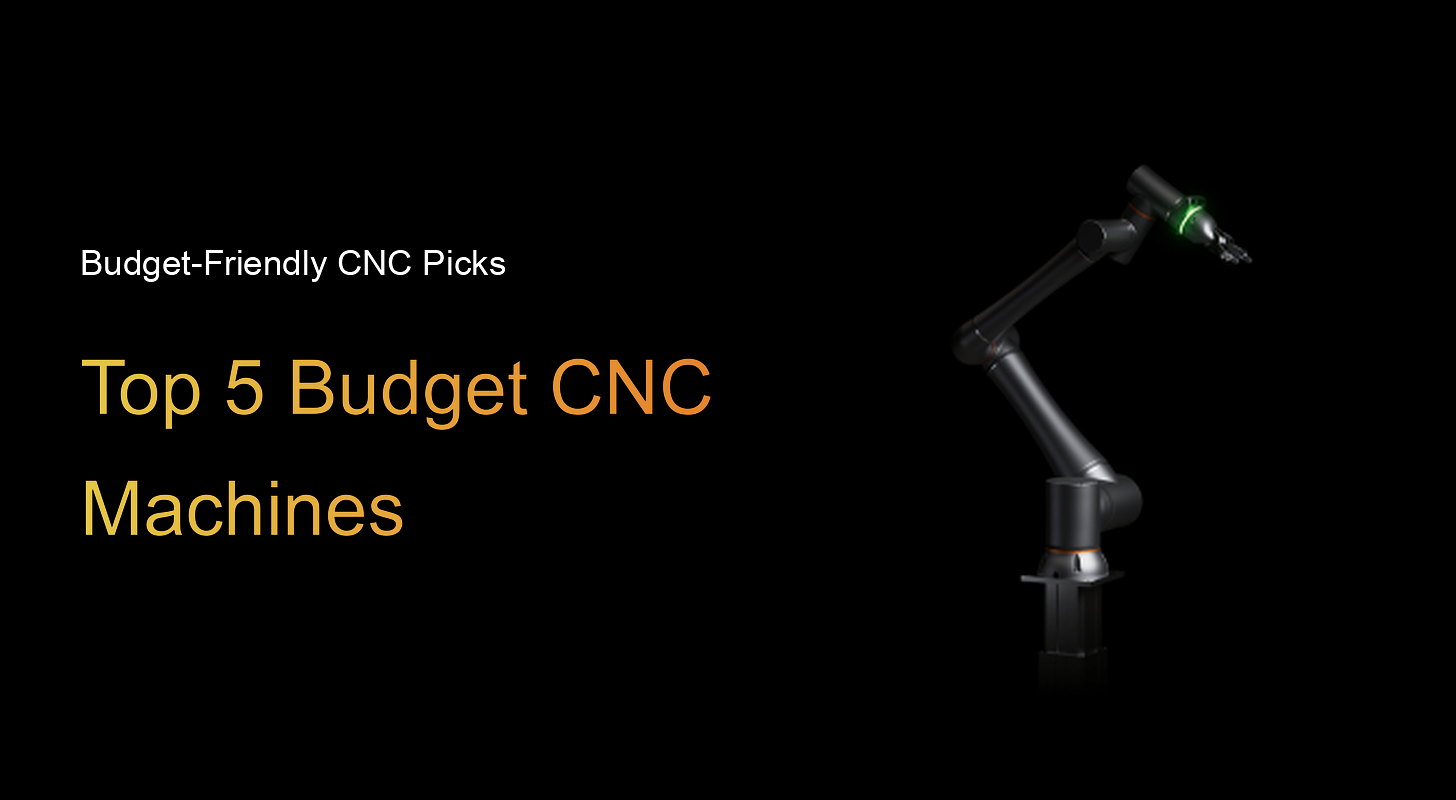Cobot AI combines collaborative robots — the ones that can work safely alongside humans — with smart technologies like machine learning to create smarter, more adaptable machines.
More traditional cobots follow strict programming, but with AI, they get a dose of “brains” that helps them make quick decisions, adjust to changing environments, and much more.
We’ll cover:
- How cobot AI is different from traditional cobots and why it matters
- Ways AI makes cobots more flexible, precise, and even self-maintaining
- Common challenges solved by cobots with AI
- Real-world jobs where AI cobots are making a difference
- Tips on costs and setup for adding AI cobots to your team
Let’s get into what makes these machines tick.
How does AI improve cobot functionality?
With AI, cobots are not just doing the job — they’re doing it better, faster, and smarter.
Here’s a look at why this happens:
- Real-time decision-making: AI-powered cobots can adapt to what’s happening. Did you get an unexpected item on the way? They’ll reroute themselves without fuss. This also helps minimize interruptions that would otherwise slow down production lines.
- Ultra-high precision: In high-stakes jobs where accuracy is a dealbreaker, AI cobots bring their A-game. They take real-time data into account, so every move is spot-on — no wobbling, no second-guessing, just reliable precision (nearly) every time.
- Self-care routines (predictive maintenance): AI cobots know when they’re due for maintenance, so there are no surprise breakdowns mid-project. They self-diagnose and flag issues before they become problems, which means fewer disruptions and lower costs. Predictive maintenance also maximizes uptime, so you’re getting the most out of your investment.
Challenges in traditional cobot applications
Regular cobots get the job done — but with AI, we’re talking about anime-level superpowers.
Here’s what traditional cobots can’t match:
- Less task flexibility: Traditional cobots need reprogramming for each new job. AI cobots? They can handle change-ups on the fly, adjusting and learning without downtime. If you’re running multiple product lines or need seasonal changes, this is like somebody heard your prayers.
- Frequent reprogramming needs: Standard cobots rely on humans to constantly tweak their programming. With AI cobots, you’re looking at a one-time setup plus occasional tune-ups, making them way more efficient. Over time, this type of programming means less manual intervention.
- Less dependency on humans for troubleshooting: If a standard cobot hits a snag, it’s calling you in for help. But AI cobots can occasionally troubleshoot on their own, keeping operations smooth and your hands free. This independence is especially useful in high-stress environments where every second counts, like busy distribution centers.
Use cases for cobot AI in manufacturing
AI-powered cobots are becoming the main choice for a huge variety of industries — especially where adaptability is mega-necessary.
Let’s take a look:
- Quality control: AI cobots are superb at inspecting for mess-ups and can catch even the tiniest flaw in real time, stopping issues before they escalate. Their improved vision systems, powered by machine learning, can spot details beyond human detection, ensuring products meet the highest quality standards.
- Precision welding (for custom jobs): When you’re dealing with low-volume, high-mix jobs, AI cobots handle complex welding and machining with near-perfect precision, meaning fewer mistakes and higher quality output. This makes them extremely valuable in industries like aerospace and automotive.
- Auto material handling: Ah, yes, there are lovely traffic jams on the warehouse floor. With adaptive path planning, AI cobots like AMRs smoothly navigate complex environments so materials get where they need to be without delay. Their adaptability allows them to avoid obstacles or reroute as needed, minimizing bottlenecks.
Cost considerations for AI-enhanced cobots
Adding AI to a cobot isn’t free, but the payoff can make up for the upfront cost in no time.
Here’s what to expect:
- Higher initial investment vs. long-term savings: Sure, you’ll spend more initially, but AI cobots reduce labor costs and maintenance, meaning you save in the long run. You can offset the eye-watering production costs (we’re talking from $8000 up to $35k+) with productivity and efficiency, often achieving ROI within one to two years.
- Operational cost perks: AI cobots optimize resource use, cut down on waste, and reduce costly errors, which makes them a budget-friendly choice over time. Fewer human errors mean fewer raw materials lost to mistakes, saving money while improving that much-vaunted environmental sustainability.
- Affordable options like Standard Bots’ RO1: RO1 combines best-in-class AI functionality with affordability, meaning you can upgrade to AI without breaking the bank. The lease model alone starts at $5/hr, which blows every other option out of the water.
How to integrate AI-enhanced cobots into your operations
Ready to upgrade your productive game?
Here’s how to smooth out that transition:
- Understand your needs: Not every process needs the brainpower of an AI cobot, so pin down where they’ll deliver the most bang for your buck. Get into the nitty-gritty of workflows for repetitive or precision-heavy jobs where AI-powered cobots would be a match.
- Setup and training: Once you bring in AI cobots, make sure your team gets proper training. RO1’s no-code setup, for instance, means you won’t need programming expertise to get them running efficiently, so onboarding takes less time and disruption. (Not to mention money.)
- Safety and compliance: AI cobots are meant to play nice with people, but always make sure you’re following safety protocols and regulations to keep the work environment safe.
Summing up
Cobot AI isn’t just fancy tech-speak meant to sell you expensive stuff — it’s a practical solution for businesses looking to level up efficiency, precision, and flexibility.
So, whether it’s spotting quality issues in real-time, increasing manufacturing efficiency, or handling tricky material transport, AI cobots make it all look easy. Or, at least, easier.
All in all, getting an AI cobot is a near-perfect upgrade.
Next steps
Are you thinking about adding an AI cobot to your team? Standard Bots’ RO1, the six-axis intelligent cobot arm, is ready to take on the challenge.
- Affordable and versatile: RO1 offers the high-tech perks of AI-powered adaptability at half of the offerings in its class — plus, it’s available with leasing options starting at just $5/hour.
- Fast and precise: With a best-in-class 18 kg payload and precise repeatability of +/- 0.025 mm, RO1 handles complex jobs without breaking a sweat.
- AI flexibility: With GPT-4 level intelligence, RO1 adapts to new tasks easily, all within a no-code framework that anyone on your team can master.
- Safety built-in: Equipped with machine vision and collision detection, RO1 integrates safely alongside human workers without needing extra barriers.
Get in touch today to start a risk-free, 30-day trial and experience the benefits of RO1’s intelligent automation for yourself.
brighter future
Join thousands of creators
receiving our weekly articles.










